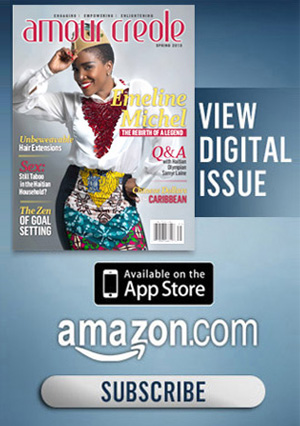Once the victims of prejudice and stereotyping, Haitians today are thriving in school and careers
When Martine Charles started high school 15 years ago in a predominantly Caribbean community in Queens, she anticipated typical teenage angst like tests, homework and boys. She least expected bullying and teasing by students she thought were just like her.
“Don’t get close to Martine. She’ll do voodoo on you,” Charles remembered classmates saying when she’d walk into class. Students would blow chalk dust from their palms toward her, pretending to blow “magic voodoo” dust, she said.
“I never thought I’d get teased about being Haitian in school, especially when all the students had some type of Caribbean ancestry. I thought we were all the same, you know, all West Indians.”
But everyday Charles was reminded Haitians were not “real” West Indians.“I was basically told I was a part of a ‘subgroup’ of West Indians that is comprised of uneducated boat people who carried AIDS,” she said. “I was conditioned to believe that being Haitian is nothing to be proud about.”
It has taken more than a decade for teens like Charles to feel accepted.“It’s been a lengthy struggle,” said Jean Robert Lafortune, president of Haitian American Grassroots Coalition in Miami who is writing a book on the contributions of Haitians to America.
“The census classified us as Africa American,” he said of the struggle. “We had to take proactive measures on educating the community why it was important to be categorized as Haitian Americans.”
Haitian children rarely flaunted their ethnicity for fear of prejudices and stereotypes against Haitian immigrants, said Fabienne Doucet, co-founder of HaitiCorps International.
A new day
Today, young Haitian Americans are more proud than ever of their heritage; a stark contrast with the “undercover” identities Haitian Americans clung to for fear of discrimination, Doucet said.
High school freshman Fitzgerald Emmanuel, a second-generation Haitian,said he’s aware negative stereotypes exist, but has never felt ashamed.
“It never came into my mind to be ashamed,” said Emmanuel. “When it’s Flag Day or a holiday in Haiti, we come to school with either our flags or we’ll wear a shirt with the Haitian flag on it.”
Why the shift?
Today, more Haitians are holding prominent positions in society, said Flore Zephir in her book Trends in Ethnic Identification Among Second-Generation Haitian Immigrants in New York City.
Zephir said children today see other Haitians thriving in school and in career. Twenty years ago, second-generation youths rejected their Haitian ethnicity to better fit in with their non-Haitian peers. These children chose to “conceal any trace of Haitianness and/or recent affiliation with Haiti by claiming a totally different identity, ranging from African American to West Indian, to newcomers from other locations such as Montreal, France, and Latin America” wrote Zephir.
But two decades later, second-generation Haitians are being raised in an era where positive representations of Haitians are found in the media and in their own lives. Celebrities like Garcelle Beauvais, Dawn Richards and musician Wyclef Jean are role models for young Haitians.
The process of self-acceptance and pride would have occurred at a quicker pace if young Haitian Americans knew the extent to which Haitians contributed to the history and success of this country, said Lafortune. “This information needs to be accessible to the youth so they can claim their history,” he said.
Sociologists have coined the phrase “segmented assimilation” to describe how many second-generation immigrants are no longer disassociating with their parents’ birthplaces in exchange for an American identity.Children are adopting American society while still maintaining cultural identities to their parents’ homeland.
Defining moment
For Charles, she realizes how much everything has changed since she was a child.
“It’s funny when I think about it,” she said, remembering a recent conversation she had at a coworker’s baby shower about the diversity of the party crowd.
“We joked how we had some Trinis, Italians, Haitians, Jamaicans and Russians in the house,” she laughed. “Then we started poking fun at the stereotypes of each nationality. When Haiti was finally brought up, I held my breath. Shockingly, everyone struggled to think of something.”
With the devastation brought on by the January 2010 earthquake in Haiti, paired with the overwhelming possibilities that lay ahead with the country’s reconstruction, Haitians are now in a defining moment. It’s a moment where they have the opportunity to not only claim their heritage, but to also become a world player. And Charles is noticing the change bit by bit.
“I remember the first time I heard kompas played on Hot 97,” Charles said. “It was such an amazing feeling. For the first time I felt included.”
Tips for parents
- Teach your children about your rich cultural background and your community’s contributions to the U.S.
- Involve your children in cultural community activities.
- Point out positive role models from your ethnic background that are well-known in mainstream culture.
Filed Under :










